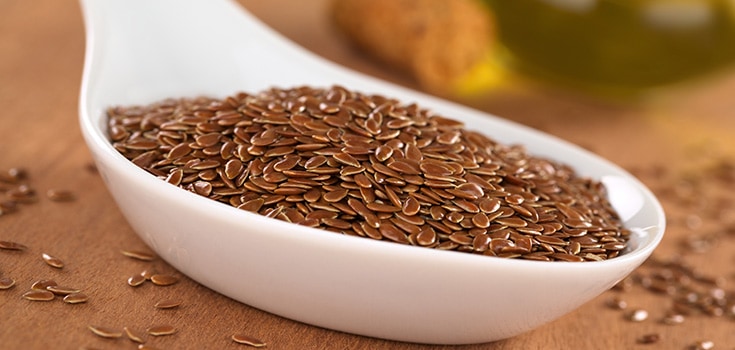Use Flaxseeds for Protection Against Radiation Exposure

You may be aware that flaxseeds can be used to detox your body naturally, while also being a good source of omega-3 fatty acids and fiber. But what you probably didn’t know is that they also work to protect the body from radiation exposure. As the threat of another Fukushima or nuclear weapon use is always present, even if the odds are against it, it’s good to know something as affordable and unassuming as flaxseeds could protect you.
It was found that the flax seems to protect lungs and other healthy tissues and organs before radiation exposure and reduce damage after exposure as well.
Researchers with the Perelman School of Medicine at the University of Pennsylvania supplemented the diet of mice with 10% flaxseed. Another group of mice received no flax. Then, all of the mice were given X-ray radiation to the thorax. Four months after the radiation, 40 percent of the no-flax group were dead. But, 70 to 88 percent of the flaxseed group were still alive.
One of the lead researchers says that their study has demonstrated the value of flaxseed in the event of a nuclear disaster and says it could serve as a good protection for the people “who probably weren’t exposed, but are concerned and want to do something.” In the case of Fukushima, this could include the entire world population.
So, why flaxseed? It’s cheap; you can find it at nearly any grocery store, and it provides a wealth of other health benefits as well. It’s good for your heart, your lungs, and your digestive health. It provides protection against certain types of cancer, encourages brain health, and even supports healthy skin.
Lignans in flaxseeds are credited with all of these benefits. They are plant estrogens that pull double duty acting as antioxidants. While other seeds and grains contain lignans, flaxseed has more than 800 time the amount of any other source.
Those scientists with the radiation study are convinced of its usefulness; so much so that they include it in their own daily diet. “I actually eat it every morning,” said one doctor involved with the study. “The potential health benefits are significant and there is no known toxicity—it just makes sense to me.”
So, what do you do with flaxseeds? Buy the kind that’s already ground or grind it yourself. The oils will cause it to go bad fairly quickly, so store them in the refrigerator. Add them to baked goods, sprinkle them on salads or soup, or stir them into your morning oatmeal.
The way in which the study was performed is controversial, but the takeaway of the research is still worthy of note.
Additional Sources:
